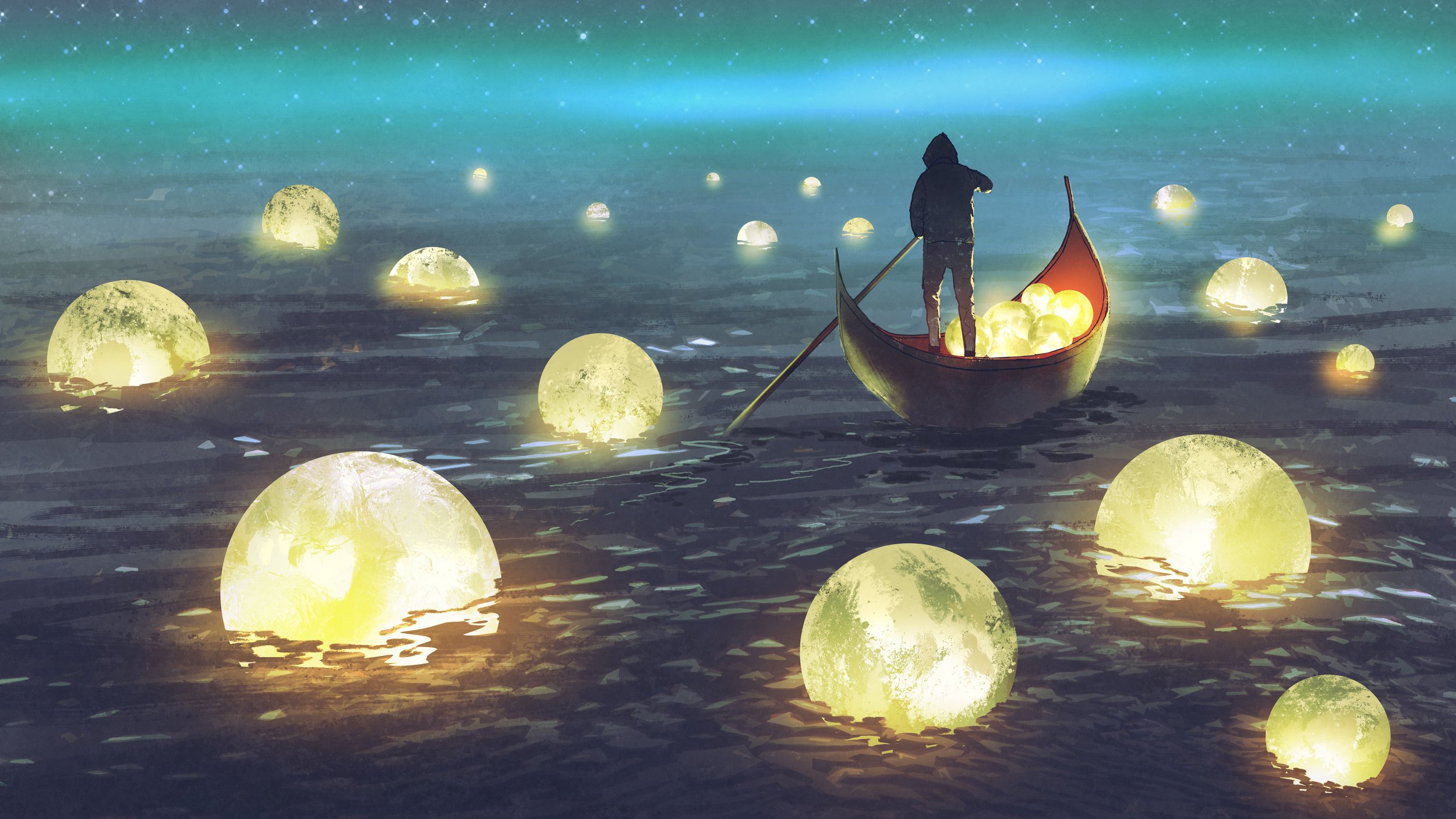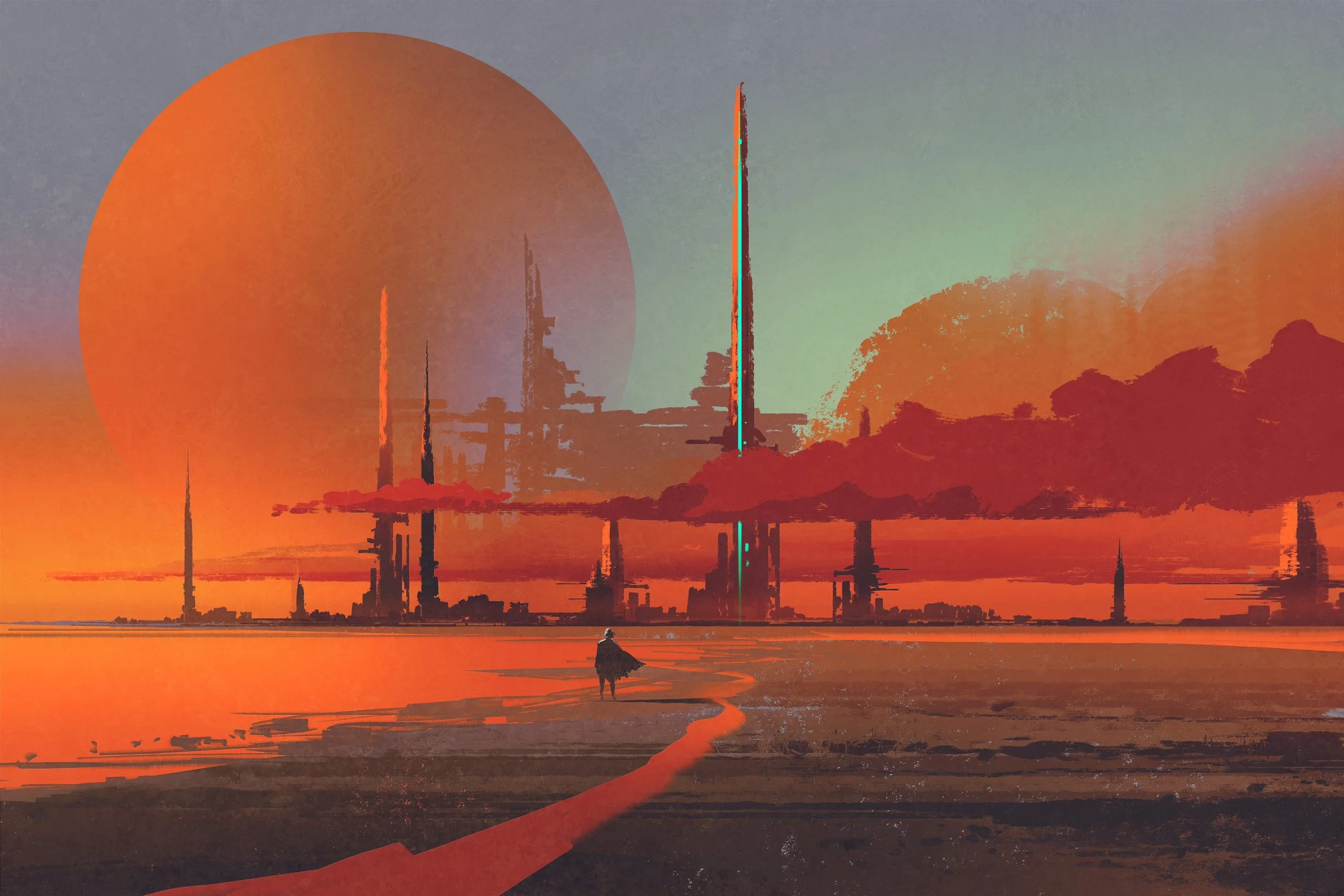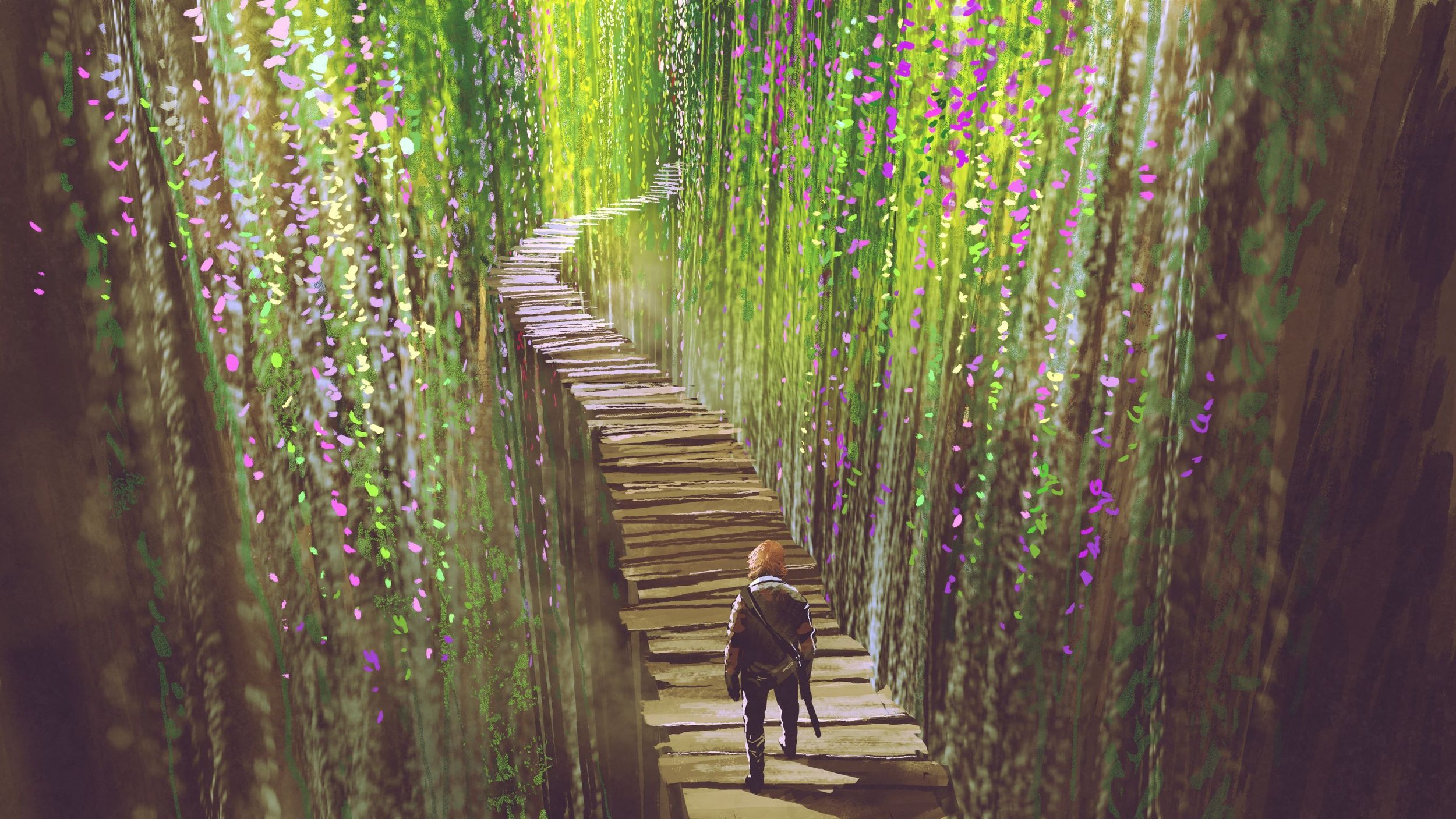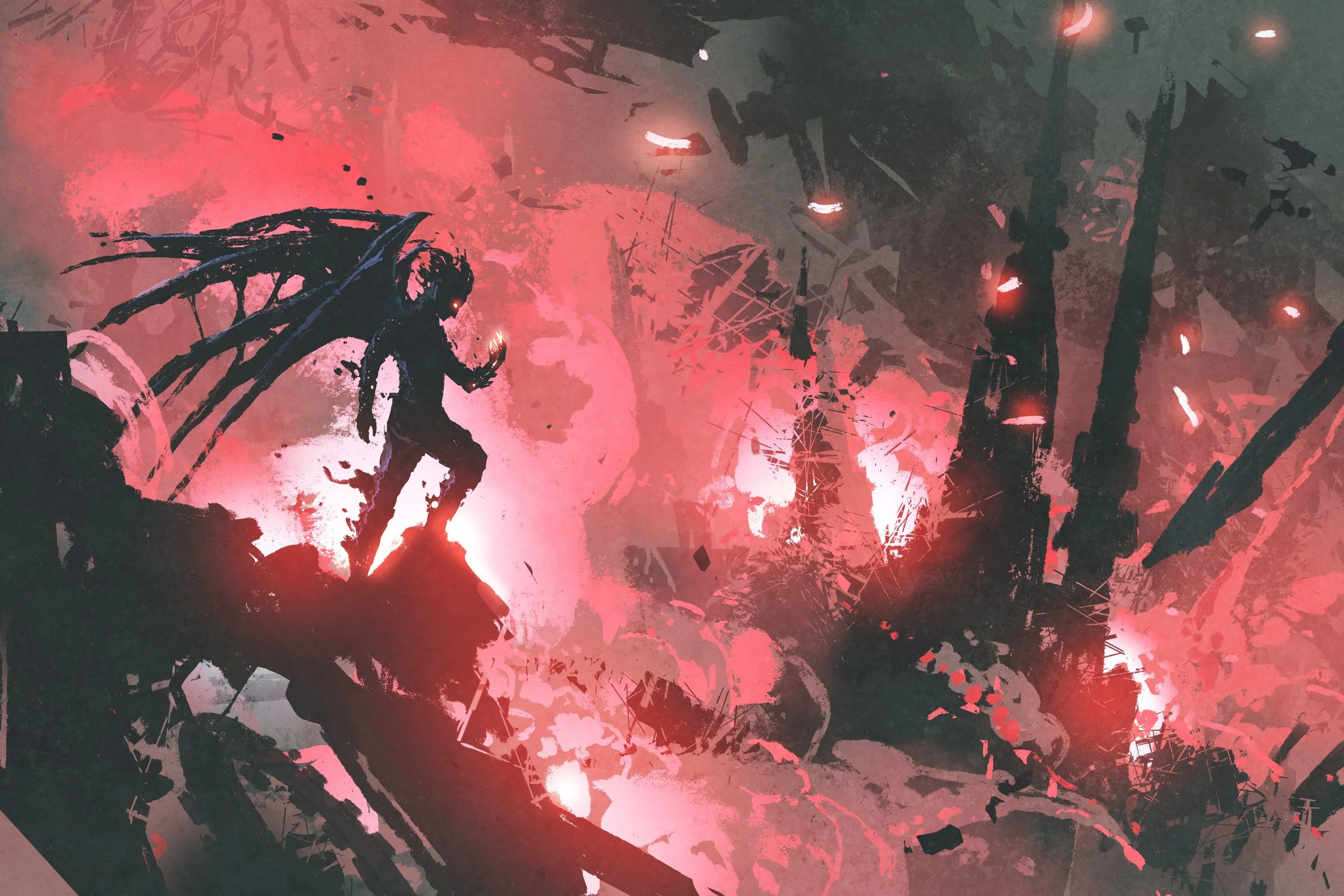D&D and Disabilities - My Quest for Trust in the Dark
Thank you Anneliese Knop for this amazing and insightful guest post!
I can’t see dice.
I can’t see grid maps.
I can’t read spell cards or manuals.
I can’t operate a character sheet
I can’t recognize minis without picking them up, and I’ll knock over half a dozen if I reach to find the one I’m looking for anyway.
Can blind people even play D&D?
Thanks to advances in technology, D&D now offers solutions for almost all of those problems, but when I started playing they weren’t available. I made it work by asking for peoples’ help. I need help doing EVERYTHING, except making decisions and role-playing.
So does that even count as playing? I felt almost like another game piece rather than a player, unable to move myself, see the enemies in proximity, just inert plastic that fires others’ imaginations. What was I even doing at the table?
Feeling like a burden is nothing new to me. I’ve always needed help reading labels on canned food, getting from place to place in cities without mass transit, organizing photos, matching clothes. But I’d never found this feeling so concentrated as when I sat down with my friends to try and tell a story together with dice and cards and monsters.
When I was first invited into a game I certainly didn’t expect to face my worst fear. I absolutely never expected to overcome it.
I didn’t often speak of this fear to my friends because as a young person with a disability I had been shamed into projecting positivity about my blindness. But with it so inescapably surrounding me I finally started sharing my concerns. As the game went on and I discovered more and more things I couldn’t do and needed more and more help I even thought about dropping out of the game. I wasn’t surprised when my idea was shot down by everyone at the table, but I didn’t accept it, either.
They were just being nice, just like I was just being positive. If I couldn’t be real about my feelings then they certainly would be too polite, to be honest about theirs. Right?
Ironically, I needed to keep playing to project that possibility, to avoid making them think they had failed to reassure me, or that I even needed reassurance. So I played, suffered, played some more until I finally broke down.
I sat on the couch after a game had broken up for the night, and I sobbed at my husband about the festering frustration I’d kept restrained for so long. My husband, who was also my current DM, listened, argued with me about the validity of my feelings, got frustrated, and finally threw up his hands and said “I wish you could just trust people!”
I realized at that moment there were two things preventing me from really enjoying this game that I wanted to love so much.
My blindness, which I have no control over
Whether or not I trust people, which I can control
Let me introduce myself. I’m Anneliese, a fellow adventurer whose noble parents traded the vision of their firstborn child (me) to an evil sorcerer as a ransom for some poor hapless villagers. Now I wander the Realm bringing the ways of the Dark Side to you poor light-dependent people along my way. I still hope for a cure, but in the meantime, I’m a counselor, novelist, and avid nerd. Here is how D&D changed my story.
Oh – and if you’re missing your host, you can pop over to my blog and read their post here. Go ahead and subscribe while you’re there, and order my new nautical fantasy adventure novel while you’re at it! Now for the Tale of Dice and Trust:
A gamer with a disability will, most likely, know about and be able to research accessibility options for their unique situation but what they might not be prepared for is how it will clash with the culture of toxic positivity peddled in a lot of disability circles.
I wrote recently about the apparent yet invalid contradiction of hope and acceptance of one’s disability. I encourage all of you to read it and consider how it might impact players with disabilities or DMs with disabilities. It’s rare to find a place where our frustrations and fears are welcomed rather than argued into submission, glossed over to avoid the CR 12 monster of Pity.
My husband was right; I didn’t trust people. I didn’t trust that they truly wanted me no matter what I could, or couldn’t do. I didn’t trust their reassurance, their open statements that having me in the game made it more fun even if all I did was contribute to the narrative. They’d never given me a reason to doubt them, but I grew up believing I was only as valuable as my ability to compensate for my blindness.
Many different friends, DMs and players alike, subtly challenged that belief by continuing to ask me to play in their games, consult on character backstories, and even compose epilogues for our games. I had something to offer, they were appreciating it, but in an ironic twist, I had been too blinded by my fear to truly see it!
But unlike my genetic blindness, this blind spot was something I could actively clear up. I opened my eyes to the history of acceptance and took tentative steps forward into a brighter future inhabited by welcoming arms. I actively set aside my distrust, recognizing it wasn’t fair of me to disbelieve people who had never given me cause to doubt them. But I could not have taken these steps without first being allowed to acknowledge how frightening they were.
Dungeons and Dragons gave me a place to explore, challenge, and discard my belief that I was too much work to keep as a friend. I allowed myself to risk believing that people wanted me to play with them because they genuinely enjoyed my company and loved my storytelling abilities. It was terrifying, but instead of my friends drifting away from me we made more memories together. We have inside jokes and plans for more games.
Incidentally, as a therapist, I’d like to point out that it wasn’t until I wrote this post that I realized the DM who initially invited me, knowing I was blind and knowing how visual the game was, did so despite knowing how much help I’d need. Externalizing, either through writing blog posts or journaling, is a great way to discover often-overlooked details of our reality that reframe our difficulties.
When your usual host and I discussed this blog swap we originally decided I would write something about how to make TTPRPGs more accessible to blind and visually impaired players. That’s a valuable, and broad, topic and I’m happy to say that there are official resources being developed with this in mind. But when I sat down to compose this article I found myself aching to share a different story. Still, in the vein of accommodation, it’s one that’s getting less attention but ultimately at the root of most accessibility issues for people with disabilities.
Whether a person with a disability chooses to try trusting others or not, chooses to feel positive or bitter or some combination about their needs and limitations is entirely out of the control of able-bodied players. My friends couldn’t make me trust them. They just loved me the best way they knew how. And that consistent, genuine love opened the door for me to find peace within myself and fully embrace my nerdy gamer side that had lain dormant for far too long.
So how do you make a tabletop role-playing game accessible to disabled players? By lovingly and respectfully accepting whichever parts of themselves they bring to the table, just like you would any other DM or player.
Author:
Anneliese Knop, aLC, is a mental health counselor, fantasy author, and self-proclaimed “blindfluencer.” She published her first novel in 2021, and blogs about life as a blind woman with a service dog here on The Dark side. Follow her on The Dark side, Goodreads, and Facebook for book updates. LinkedIn for mental health articles. Twitter for a little bit of everything.
Read more personal stories about facing our fears and learning to trust: The Mask of Accommodation: Confessions of a People Pleaser and Green Lantern: Creativity, Fear, and the Power of Self-Expression








